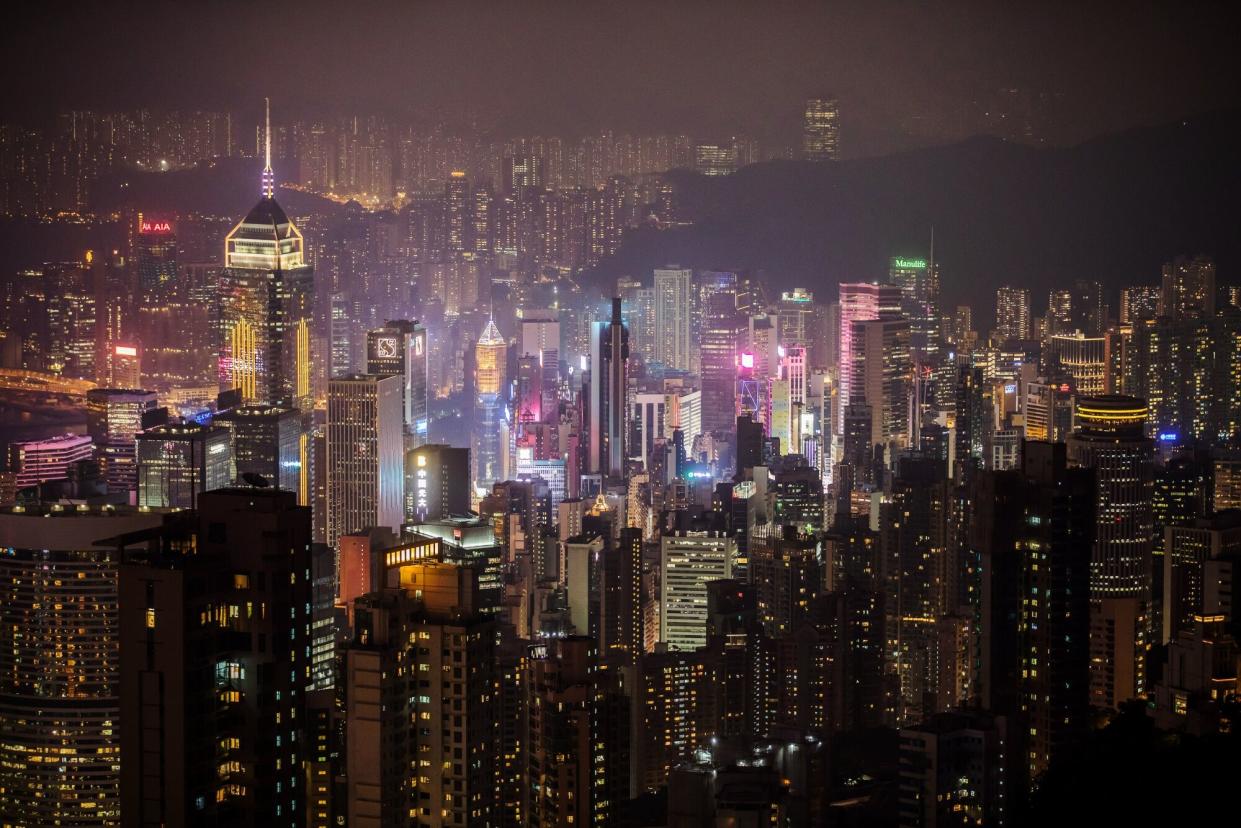Hong Kong Life in Amazon’s Expats Is Tragic, Lonely and Boring

(Bloomberg) -- Nicole Kidman showed up in Hong Kong to shoot the new Amazon miniseries, Expats, at a particularly awkward moment for the city. It was August 2021, when China (and by extension, Hong Kong) was steadfastly clinging to Covid Zero practices. Strictures included not just masks but school shutdowns, plexiglass partitions to separate diners in restaurants and—deeply infuriating to residents—one to three weeks of mandatory hotel quarantine for anyone arriving from overseas.
Most Read from Bloomberg
Putin Sends US Signal on Ukraine Talks, Seeing War Advantage
One of World’s Richest Doctors Sees Fortune Surge to $12 Billion
JPMorgan Shuffles Top Managers as Jamie Dimon Prepares Successors
The policies stripped Hong Kong of two of its best features—easy travel and a vibrant social scene—and the news that Kidman was being allowed to skip the mandatory confinement spread faster than any pathogen. Officials defended the exemption, saying the shoot would be good for Hong Kong’s battered economy and global reputation. True or not, it emphasized how absurd the city’s Covid policies had become. One lawmaker noted that she herself was bound to observe the rules of quarantine and wondered how her work “compares with that of a film star.”
But Hong Kong, a British colony until 1997, makes no pretensions of fairness. Expats, based on the novel by Janice Y.K. Lee, isn’t that interested, either.
It takes place in 2014, the year the pro-democracy Occupy protests shook the city for months, and focuses on three American women. Margaret (Kidman) is what’s known as a trailing spouse, having given up her work to enable her husband’s move to Hong Kong; her neighbor Hilary ( Sarayu Blue) has an ambiguous career, an unreliable husband and some amazing jumpsuits; newly graduated Mercy ( Ji-young Yoo) is desperate to outrun an old family curse.
The show opens roughly a year after the youngest of Margaret’s three children has gone missing, an horrific event that connects the women and defines them to varying degree. In flashback, the series deals with the more pedestrian dramas of Margaret’s previous life. She wants to go back to the US, where her friends were “CEOs, artists.” She’s at loose ends in their palatial apartment and jealous of the bond between her children and their live-in maid. “This isn’t real life,” she complains to her husband Clarke (Brian Tee). “There’s nothing wrong with spoiling ourselves a bit,” he tells her. “We deserve it.”
And Clarke is the likable one. Unlike the others, he’s able to turn outward to the people around him. The first episode begins with preparations for his lavish 50th birthday party, an obviously strained and possibly misguided celebration under the circumstances. It’s also a rare moment in which we see any of the characters surrounded by any semblance of community. The three women, on the other hand, are mostly alone in their distress.
It’s bleak, and it’s boring. Not a lot happens. The characters agonize, make predictably unfortunate decisions and say things they regret. Overall, they hold themselves apart. Their deepest thoughts are expressed in voiceover, not to other people.
It doesn’t make for very compelling TV, but it does reveal an unflattering truth about expat life in Hong Kong: It can be a pretty self-centered undertaking. You’re thousands of miles and several time zones from the obligations of extended family, buffeted by perks and privileges and merely inconvenienced by even the most seismic political upheavals. It’s a nice bubble—until it pops.
Creator Lulu Wang makes the most of Hong Kong as a backdrop, painting the city by turns exotic, fancy, impenetrable and lonely. There’s the skyline and the harbor, sure, but also the escalators, the unmistakable tiling in the metro, the winding roads, the multicolored housing estates. In a scene at the sprawling Hong Kong International Airport, a teenage girl complains about the long walk to the gate.
For all the detailed and loving cinematography, Expats feels oddly placeless. The same story could unfold in a wealthy enclave in Dubai, London or Mexico City. That’s part of the point, I’m sure, but Hong Kong is far from a neutral backdrop. Its future feels precarious for the 7.8 million people who live here, almost all of whom are local or mainland Chinese. Of the roughly 620,000 foreign residents, most are domestic workers and drivers, not well-compensated executives.
There’s only one memorable local character in the series, played by Hong Kong native Bonde Sham: Charly, a young activist who gets involved with Mercy. Their ultimate falling out doesn’t make a lot of sense, but her parting shot lands. “You’re a tourist! [The protests] don’t affect your future. You can just leave—another blessing I’m sure you can’t see.”
Most Read from Bloomberg Businessweek
How a Lucky Break Fueled Eli Lilly’s $600 Billion Weight-Loss Empire
How the West’s Favorite Autocrat Engineered Africa’s Most Dramatic Turnaround
AI Needs So Much Power That Old Coal Plants Are Sticking Around
Goldman, Lazard Look to Ex-Spies to Gain an Edge in Volatile World
©2024 Bloomberg L.P.



